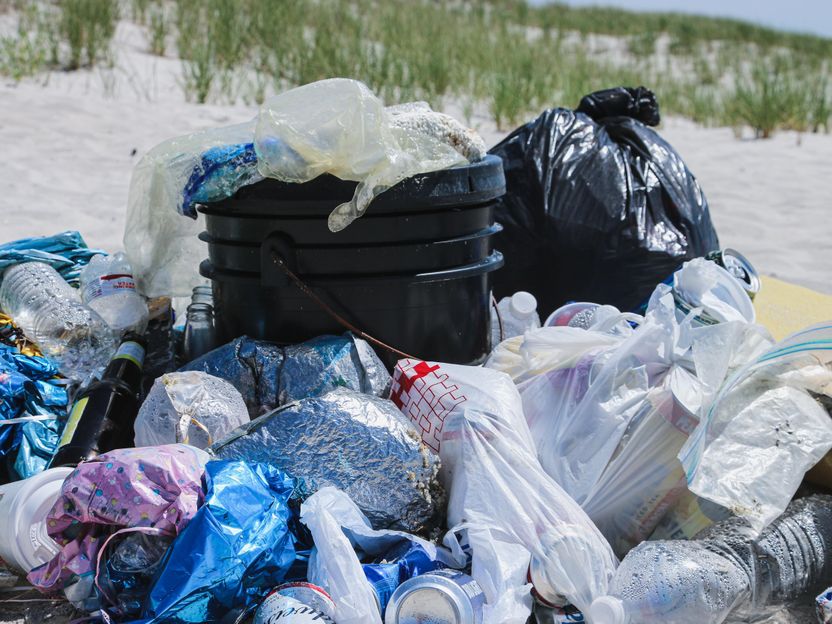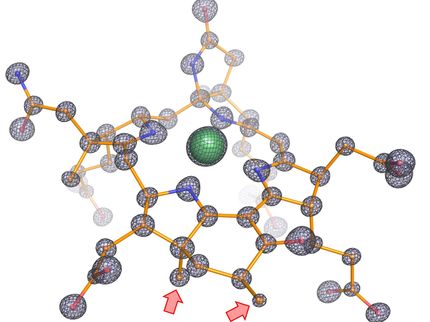Turn plastic waste into edible food
Future Insight Prize 2021 of € 1 Million Awarded to Ting Lu and Stephen Techtmann
Merck announced the winners of this year’s Future Insight Prize. The € 1 million prize in the category of “food Generation” was awarded today during the Future Insight Days in Darmstadt, Germany, to Ting Lu, Professor of Bioengineering at the University of Illinois Urbana-Champaign, USA, and Stephen Techtmann, Associate Professor of Biological Sciences at Michigan Technological University, USA. The researchers’ project uses microbes to first degrade plastic waste and then produce protein from that degraded waste. In addition, during the 2021 Future Insight Days the Spinoff Prize of € 30,000 was presented to HighT-Tech, Maryland, USA, one day prior to the Future Insight Prize ceremony.

Symbolic image
Unsplash
“The winners of this year’s Future Insight Prize have created a ground-breaking technology with the potential to generate a safe and sustainable source of food while reducing the environmental harms associated with plastic waste and traditional agricultural methods,” said Belén Garijo, Chair of the Executive Board and CEO of Merck. “We congratulate Ting Lu and Stephen Techtmann for their promising research, and hope that the Future Insight Prize will help to accelerate their efforts.”
“In my lab, we focus on microbial synthetic biology, which harnesses engineered gene circuits to program microbial cell functionalities for the purpose of uncovering biological design principles and advancing biotechnological applications,” said Ting Lu. “Environmental microbes are capable of catalyzing a wide array of chemical reactions, many of which may have industrial applications. My lab studies how complex microbial communities can cooperate to perform functions of industrial interest,” said Stephen Techtmann. Both prizewinners thanked Merck for the € 1 million Future Insight Prize that they were jointly awarded to further their research: “Our joint research will allow us to take the plastic waste we’re generating in the world and turn it into something valuable: food and fuel.”
The two researchers named their project “From Waste to Food: A Generator of Future Food”. It concerns an efficient, economical and versatile technology that converts wastes such as end-of-life plastics into edible foods. These foods contain all the required nutrition, are non-toxic, provide health benefits, and additionally allow for personalization needs. This technology promises to transform waste streams into nutritious food supplements, thus solving the two problems of increasing food scarcity and plastic waste simultaneously. The core of the proposed technology is to harness synthetic microbial consortia – a combination of natural and rationally engineered microorganisms – in order to efficiently convert waste into food. The project will comprise four research goals: proof of concept for direct conversion from polyethylene terephthalate (PET) to protein powder (goal 1), augmentation of biosafety for food and for the environment (goal 2), introduction of nutritional and health-promoting contents (goal 3), and expansion of the technology to include additional plastics or other types of waste (goal 4). The proposed work will establish a transformative basis for food generation.
The Future Insight Prize was first announced by Merck in 2018. It has been awarded annually since 2019 for groundbreaking science for four visionary dream products and is worth up to € 1 million:
- 2019: Pandemic Protection – enabling accelerated protection against newly emerging pathogens (category: Health)
- 2020: Multi-Drug Resistance Breaker – solving the problem of antibacterial resistance to multiple antibacterials (category: Health)
- 2021: Food Generation – technology to help feed the world’s growing population (category: Nutrition) by converting any nonedible biomass into readily edible and fully nutritional food
- 2022: CO2-to-Fuel Converter – generating fuel by photocatalytic conversion of atmospheric CO2 (category: Energy). This category is open to proposals here until December 31, 2021.
In 2019, the very first winners of the Future Insight Prize were Pardis Sabeti from Harvard University and the Broad Institute, Cambridge, Massachusetts, USA, and James Crowe from Vanderbilt University Medical Center, Nashville, Tennessee, USA, for their research in the area of pandemic protection. Merck awarded the 2020 Future Insight Prize to Stephan Sieber from the Technical University of Munich, Germany, for his project on a multi-drug resistance breaker.
The Future Insight Days 2021 presented the Spinoff Prize. The Spinoff Prize, established by Nature Research publishers in partnership with Merck to showcase and celebrate global excellence in the commercialization of academic research through the creation of spinoff companies, was presented to HighT-Tech, College Park, Maryland, USA yesterday. The spinoff of the University of Maryland and Johns Hopkins University was founded in 2019 and specializes in disruptive materials science. Magdalena Skipper, Editor-in-Chief of Nature, presented the award worth € 30,000. Further finalists yesterday were solar photovoltaic modules start-up Cambridge Photon Technology from Cambridge, UK and regenerative medicine solutions start-up Bilitech and med-tech start-up Neuronostics from Bristol, UK.




























































